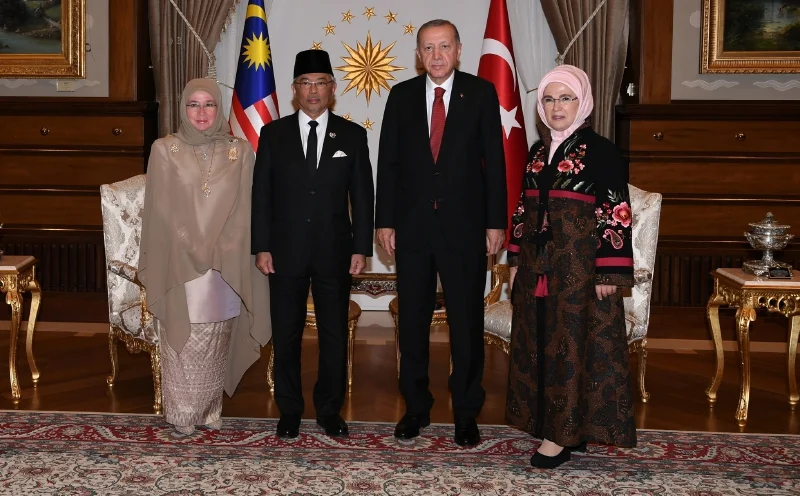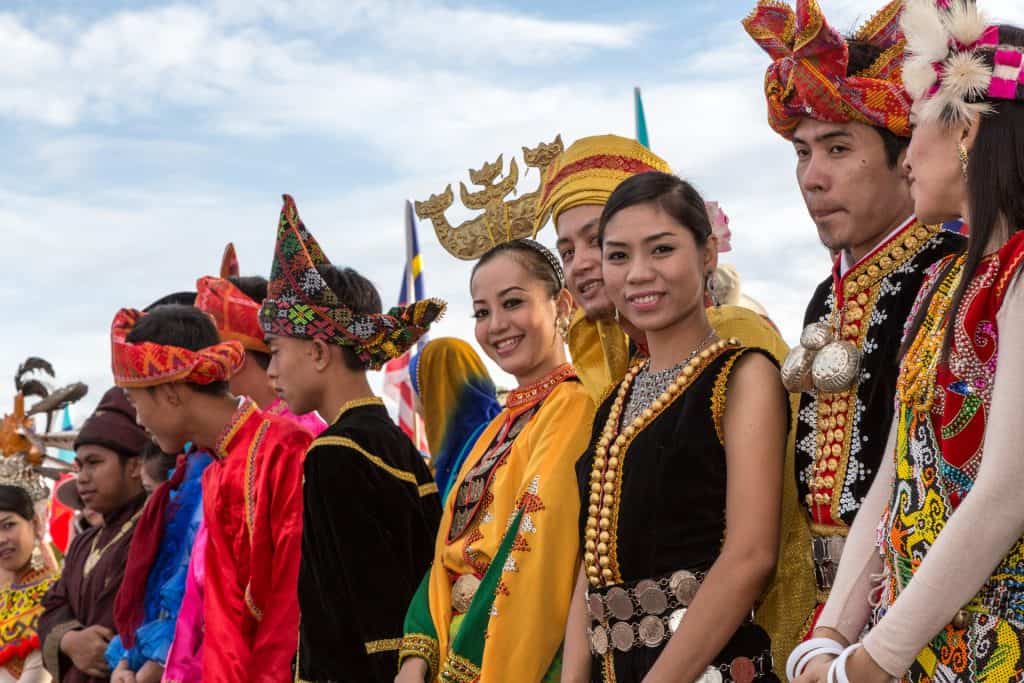Background
The deployment of the Malaysian contingent to the International Monitoring Team (IMT) Mindanao, The Philippines this year marks the 15th year participation of Malaysia direct involvement in the peace process between the Government of the Philippines (GPH) and Moro Islamic Liberation Front (MILF). The supranational team comprises of 5 nations – Malaysia, Brunei Darussalam, Japan, Norway and European Union – with the surprising withdrawal of Indonesia in 2018, were a non-UN initiative but made possible based on Chapter 8 of the UN Charter which required the invitation by the host country prior to troop deployment. Taking into consideration the positive development of the peace process between GPH-MILF and the ever-increasing interest among new nations outside the IMT banner such as Canada, United Kingdom, and Turkey in contributing to build a strong Bangsamoro Autonomous Government (BAG) machinery such as the Bangsamoro police force, future ministries, strong Bangsamoro judicial system, and etc, Malaysia need to seriously start to re-evaluate and recalibrate their presence in Mindanao by not just being confined to merely as an observer focusing solely on the Security component, but perhaps in a more active participation in engaging the BAG.
Malaysia Role in Facilitating the Regional Peace
At the present time, Malaysia was trusted to play a pivotal role as a third-party facilitator between GPH and the MILF in formulating a workable solution for a long-lasting peace in Mindanao. A Malaysian citizen by the name of Tan Sri Zakaria bin Abdul Hamid from the Prime Minister’s Department was the appointed facilitator and he is the third one since 2004 to have played such a crucial role in ensuring the success of the peace talks between the warring parties from the drafting of the Framework of the Bangsamoro Agreement (FAB) which was signed in 2012, to Comprehensive Agreement for Bangsamoro (CAB), signed in 2014 and both were witnessed by the former Prime Minister of Malaysia, Dato’ Sri Najib Razak at Malacanang Palace to the conclusion of the Bangsamoro Basic Law (BBL) and Bangsamoro Organic Law (BOL) which was signed by the current President of the Philippines, Rodrigo Duterte in 2018. Tan Sri Zakaria in his capacity as the facilitator also plays an active role in advising the Prime Minister of Malaysia in keeping tab with the peace negotiations between GPH and MILF.
It is not a surprise for a Malaysian Prime Minister to always keep tab on the peace talks in Mindanao since the Malay ethnic in Malaysia and the Moros in Mindanao shared a similar trait of ethnic struggle against the foreign colonialism in the case of Mindanao are persecutions of Muslim’s right since the Spanish colonialism, infringement of the indigenous people’s rights, illegal land grabbing activities sponsored by the central government just to name a few. The MILF even drew some of their inspirations for self-government from the United Malay National Organisation (UMNO) lead political party in Malaysia as can be seen by their ever presence during the annual UMNO General Assembly in Kuala Lumpur. The advantages that are currently being enjoyed by Malaysia in the peace talks were extended further by the IMT presence headquartered in Cotabato City and two others team site within the BAG region (Zamboanga and Illigan City).
Malaysia as the Head of Mission (HoM) of the IMT with the largest composition troops of personnel from various government agencies such as the Malaysian Armed Forces (MAF), Royal Malaysian Police (RMP) and civilian officers from the Ministry of Foreign Affairs (MOFA) and Ministry of Defence (MINDEF) should be able give us a clear insight into future necessary engagements in assisting BAG in their endeavours to build a strong governing structure with the ample know how for the future.
This would further present Malaysia with strategic advantages which are in parallel with our national interest on security and defence matters (the never-ending Sabah claim by the Royal Sulu court/ Philippines central government, illegal trans-border movement of people and Kidnap for Ransom (KFR) threats emanating from the Sulu sea) and also in providing Malaysia a upper hands-on future trade engagement with the BAG once the area flourishes with economic activities once peace is achieved. In taking advantage of the future opportunities arising from peaceful Mindanao, Malaysia needs to start evaluating our presence in Mindanao and should not be confined only as a passive observer at IMT. Moreover we cannot really tell when our role as the peace process facilitator expires since we are now reaching the final phase of the peace negotiations conclusion before the agreement will be implemented. As such, we need to start offering future leaders of Bangsamoro a scholarship to study at the Public Universities in Malaysia in various fields of which that can prepare them to lead the BAG in the future. There are two ways to do this either; (1) in offering the MILF leaders at Darapanan or BAG provisional leaders in Cotabato City with an official invitation for a diploma/ degree level of studies in Malaysia or; (2) to offer them short term courses tailored for local government leaders/ future leaders of Bangsamoro under the auspices of the Malaysian Technical Cooperation Programme (MTCP) lead by MOFA on various fields such as good governance, TVET or community empowerment programs. These track two diplomacy initiatives will go a long way in establishing a strong bond of cooperation between the Malaysian government and BAG for future benefits. The IMT in Mindanao can served as a good sounding board for all of above suggestions.
Rethinking Malaysia’s Role in Peace Process in Mindanao
As we are seeing the decreasing responsibilities of the IMT through the years with the latest one in 2019 when the Office of the Presidential Adviser on the Peace Process (OPAPP) decided to abolish the Civilian Protection and Humanitarian Assistance Components (new ToR signed mandated by the GPH to Malaysia led IMT), Malaysia needs a quick assessment of what’s next for IMT or a Malaysian lead organisation in Mindanao. Perhaps we need to start sending our NGOs in Mindanao (with the likes of Mercy Malaysia or Islamic Relief) funded by the Prime Minister’s Department. Such presence is needed not only for us to continue offering our humanitarian assistance to the Moro people in Mindanao but also in ensuring a long-lasting peace that would benefit Malaysia in the long run considering the poverty level in Mindanao are relatively low compared to other Southeast Asian nations with hard access to basic necessity and good medical care. A NGOs can offer a political approach towards a workable conflict resolution as what can be seen in Afghanistan, Syria and Yemen. Plus, the threat for regional non-state actors (such as Gerakan Acheh Merdeka-GAM, Southern Thai separatist movement, Western Papua separatist group, just to name a few) could still offer prominent warlords in Mindanao for the use of their fighters’ camp with nominal payment rents in breeding militancy capabilities for armed struggles around the region. It was duly noted that the BAG chooses Japan and Canada as a helping partner for them to form up the Bangsamoro Police Force despite Malaysia’s vast experience on Sharia law with proven track record of an efficient police force within Southeast Asia. These lost opportunities are a few examples of what our strong offer to the BAG that did not materialise due to our lack of long term strategic plan in Mindanao. The advantages that we possess as a Muslim nation with a good track record of the IMT would present a Malaysian NGO led activities a warm welcome by the BAG, Local Government Units (LGUs) or even the Moro people in Mindanao. In support of the indirect benefits that the Malaysian government should be getting through all of these strategies, we should not be too parsimonious in supporting our NGOs for a strong footing in Mindanao.
Transition of Military-Led to Civilian Leadership in IMT
To be able to see opportunities for Malaysia beyond a Security Component, it is imperative for the Malaysian Prime Minister to start re-evaluating the HoM position and perhaps to start appointing HoM for IMT from among the civilian lead ministries in Putrajaya either from the Prime Minister’s Department or MOFA itself. Currently the structure in IMT is too rigid on military matters which over emphasized on observation of the cessation of hostilities between GPH and MILF which overlook on issues revolves around the rebuilding and community empowerment throughout Mindanao. Although HoM is also responsible in overseeing the other components of Humanitarian, Rehabilitation and Development aspects (which the members are from various nations), the operational doctrine of a military personnel would impede creativity and diverse participation or IMT led programs on community building in Mindanao. Although there is still a need for military personnel in IMT to observe and become an arbitrator in the demobilization of arms of the Bangsamoro Islamic Armed Forces (BIAF) in compliance with the peace talk’s agreement, there is a stark need for Malaysia to see beyond just that through IMT. This can only be achieved if a quick rearrangement of the IMT structure was made by changing the role or the overall MAF participation as secondary to the civilian led organisation and the overall personnel composition from Malaysia should further be balance between genders compared to the male dominated members from the MAF. This is a relevant move since the affected members of the civilians due to arms conflict are mostly women and children. By doing so, IMT would be able to see beyond what was mandated and would provide better solutions and anticipate future opportunities for Malaysia from peaceful Mindanao.
The Malaysian led IMT has come a long way since its inception in 2004. Apart from IMT, our involvement in the peace negotiations as a facilitator has been a fruitful one too. Malaysia as the facilitator has managed to surmount challenges that arise from multiparty peace negotiations and poor track record of the Philippines government in adhering and respecting numerous peace resolution signed with the Moro since the Tripoli Agreement in 1976. The spoilers which emanated not only from the frustrated Nur Misuari’s Moro National Liberation Front (MNLF) based in Sulu but also from the elites in Manila which on a number of occasions chose a tough line of not giving up to the Moro demand such as happened in the year 2000 when they persuaded the former President Estrada to attack Camp Abu Bakar which broke down the peace talks. But such thing would be unlikely to happen again since we are now at the final phase of the peace negotiation between GPH and MILF. Although the peace talks have been very slow, a lot of positive developments have happened since both sides willing to compromise on demands to ensure its success. This is the second time the Islamic-dominated Moro people had experimented with a proposal for a peaceful co-existence solution with the majority Catholic Filipinos backed and protected by the central government in Manila after the failure of the in-designed limited power base of the Autonomous Region of Muslim Mindanao (ARMM) led by Nur Misuari’s MNLF party. In a hindsight, even the IMT personnel on numerous occasions had faced a life-threatening situation in carrying out their peace advocacy and patrol activities such as the one that happened in the year 2008 where a civilian officer from MINDEF were trapped in between the small arms clashes between BIAF and GPH in Midsayap Municipality that could jeopardize the whole peace talks (just to name a few breeches of hostilities recorded from thousands of armed incidences between GPH and MILF). This proved that risk was pervasive among the IMT members either it be among the military personnel or civilian’s representative. The good reviews by the locals in Mindanao on IMT is a testament for our meritorious contribution in the peace process. However, we should not be carried away by this and need to start charting a way forward for the future as our national interest remains the same in guaranteeing the success of BAG and to ensure an everlasting peace in Mindanao.


